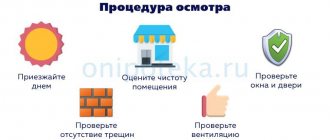When planning to donate movable or immovable property, individuals can formalize this orally if the gift is not of great value, which does not exceed 3,000 rubles, since an oral form of donation is sufficient for this. This form has legal force, however, in case of disagreement between the parties to the agreement, it will be necessary to go to court and does not guarantee the fulfillment of verbal agreements.
If the donor is a legal entity and the value of the gift exceeds three thousand rubles, then the gift agreement must be concluded in writing.
If the contract contains a promise of a gift in the future, then it must also be in writing, otherwise it will be considered void.
Donation of objects worth more than 3,000 rubles, or if one of the parties is a legal entity, is carried out exclusively in writing, which is justified, since it minimizes legal disputes and eliminates the emergence of claims from third parties in the future.
If you require proper execution of a gift agreement, contact a notary.
In some cases, execution of documents by a notary is mandatory by law: for example, if a share of an apartment or non-residential premises is donated. If you are not sure about the presence or absence of encumbrances, restrictions on rights, the obligation to draw up an agreement in notarial form, or other nuances of drawing up an agreement, call us to get professional advice. Our office operates in Moscow, has a convenient location and is always ready to urgently provide the necessary legal assistance to clients on any issues.
What does it mean to conclude a gift agreement?
A donation is a contract for the gratuitous transfer of property rights unilaterally. The donor transfers free of charge property or his property rights to certain real estate objects, objects, securities, vehicles to the donee, and the notary will help you formalize this desire by drawing up and certifying an agreement in accordance with the requirements of the law.
The features of the gift agreement are as follows:
- gratuitousness, that is, no compensation or reciprocal performance is expected from the person approved for the gift;
- the transfer of rights occurs at the time of signing, however, during registration, another procedure for transferring the gift may be indicated;
- If the gift agreement is not executed correctly, unfortunately, it can be challenged in court. In case of incorrect drafting or execution of a document in an improper form (for example, without notarization, if the transaction must be certified by a notary), the transaction may be declared void, and its legal consequences may be canceled. The services of a qualified lawyer allow you to avoid such a situation;
- The recipient has the right to refuse the gift before accepting the gift. This should be done by drawing up a specific document that complies with the law.
A little about taxes
The state fee is not charged when drawing up an agreement for donating money or any other property between relatives. Do not confuse state duty and tax - these are two completely different payments.
If you decide to enter into a gift agreement with a relative, the tax will be charged in full. In this case, there is no exemption (see paragraph 1 of Article 224 of the Tax Code of the Russian Federation).
However, tax is not charged for a gift agreement between close relatives (see Article 14 of the RF Tax Code) (see clause 18.1 of Article 217 of the RF Tax Code). Spouses, children, parents or legal representatives, grandchildren, grandparents, brothers and sisters do not pay a tax of 13% on the value of the gifted property. Other relatives are required to pay personal income tax in full.
To repay the state fee, cash and non-cash forms are allowed. The fact of payment is confirmed by a payment order or receipt.
You can make payment using one of the following methods:
- at the bank/post office;
- via a payment terminal;
- on the government services website;
- non-cash transfer from an account;
By clicking on the button, you consent to the processing of your personal data and agree to the personal data processing policy.
In addition to the state duty, there is also a tax on the acceptance of a gift. It is 13% of the value of property received by inheritance. This is due to the fact that such property is recognized as income. The donee pays the tax, since it was he who received the benefit and income.
Only close relatives of the donor are exempt from tax. For them, the obligation disappears, as this is provided for by law.
That is why a gift agreement is often concluded between close relatives.
The tax is calculated based on the amount of property indicated in the assessment. If one has not been carried out, then the amount is taken from the donation agreement itself.
Thus, the state fee for drawing up a donation agreement for an apartment is paid only with the participation of a notary in the matter. Its size directly depends on the closeness of relationship between the donee and the donor and the value of the property that is the subject of the donation.
For what objects is it possible to draw up a donation agreement?
What can be the object of donation? Most often, a deed of gift, as it is sometimes called in common parlance, a “deed of gift,” is drawn up for real estate, including the following:
- apartment donation agreement;
- land donation agreement;
- residential building donation agreement;
- apartment donation agreement;
- donation agreement for a parking space;
- garage donation agreement;
- agreement of gift of commercial real estate, including agreement of gift of non-residential premises;
- building donation agreement and others.
Donations of other objects are also formalized in writing:
- valuable papers;
- assets equivalent to securities (with the exception of shares in a limited liability company);
- any vehicles;
- material assets of great value - paintings, art objects, etc.
When registering in writing, the information of the object of the donation is described in detail, the details of the donor and the donee are indicated.
The cost of registering a deed of gift yourself
Donations of cheap things can be made orally, provided that the conclusion of the transaction and the transfer of the gift coincide in time. A written agreement is required when:
- giving is promised in the future;
- donor - organization, value of the gift is more than 3 thousand rubles;
- the donor is an individual, the value of the gift is more than 10 thousand rubles.
Notarization of deeds of gift for real estate in Russia was mandatory until 1997. In connection with the adoption of 122-FZ, notarization as a way of giving legal force to such agreements was replaced by state registration in the Unified State Register of Real Estate Rights.
At the beginning of 2021, 218-FZ “On State Registration of Real Estate” came into force, replacing 122-FZ. The key innovation is the creation of a unified state real estate register (USRRN), which united disparate and often contradictory information contained in the Unified State Register of Real Estate and the State Register of Real Estate (State Real Estate Cadastre).
In relation to donations, the essence of the improved registration procedure comes down to the introduction of the “single window” principle. The parties to the transaction who apply to the MFC (multifunctional center for the provision of administrative services) or directly to the territorial body of Rosreestr submit a single application and one package of applications.
Donating a car is associated with its deregistration for the donor and registration for the donee. As before, a technical inspection is provided, checking for the absence of unpaid fines, and issuing transit numbers. However, the efficiency of the parties to the transaction and the efficiency of the traffic police officers often make it possible to carry out all procedures on site within one day.
The following documents are required to complete the transaction
- documents confirming ownership of the object of donation;
- technical documentation with the characteristics of this object;
- identification documents of the parties (passports);
- consent of third parties, if provided for by law (for example, the consent of the donor’s spouse, if the object was acquired during marriage on the basis of a paid transaction)
During the execution of the contract, the following stages are distinguished.
- Drawing up the text of the contract and checking its compliance with legal norms. This legal analysis allows you to avoid claims from third parties who may challenge the document. Errors or clauses that contradict each other or have a double interpretation when drawing up a contract are grounds for appealing it in court, so this stage is very important and should be carried out with special care.
- Explaining the legal consequences to the parties to the transaction The notary explains in detail to the donor and the donee their rights and the essence of the actions being performed, and the legal consequences of the agreement. This is especially true for cases where the donors are elderly people. Unfortunately, there are cases when, at the stage before visiting the notary, the party to the transaction is explained, for example, that a lease agreement will be concluded, suggesting that the property is transferred for a fee for a while, and already upon visiting the notary, suddenly the party begins to insist that it is the agreement that is needed donations (property is transferred into the ownership of the recipient free of charge), but the notary, of course, will explain the fundamental difference in contracts, their rights and obligations and legal consequences. The moment they sign the agreement, they lose all rights to the property, and the lawyer’s job is to make sure that the donors understand this and agree to it.
- Checking the identity documents of the parties to the transaction, the rights of the donor to dispose of the object of the gift, checking the object of the gift for the presence of restrictions, encumbrances, and other documents.
- Checking the parties for legal capacity and powers of representatives of participants.
- Conclusion of an agreement in the presence of a notary, its notarization, execution of the document and its entry into the relevant registers.
The advantages of certifying a contract by a notary include:
- guarantee of the correctness of the contract and its compliance with legal requirements;
- there is no need to independently register documents in Rosreestr; these actions are carried out by law by a notary, if the parties do not object to filing for registration by a notary;
- absence of errors when concluding an agreement that could lead to refusal to register the transaction;
- legal advice for all participants explaining their rights.
Giving to minor grandchildren in 2021
Gifting property by grandparents to their grandchildren is quite common today in our country. At the same time, the legislator does not limit the type and type of property benefits. Simply put, a grandson or granddaughter can receive everything through a deed of gift - from a teddy bear to real estate and large sums of money.
ARTICLE RECOMMENDED FOR YOU:
Donation agreement after the death of the donor - is gifting possible?
As we already mentioned at the beginning of the article, drawing up a gratuitous donation agreement can become difficult only if the role of the donee is a minor. The reason for the complexity lies in the fact that in this situation, consent to accept the gift is actually obtained not from the recipient, but from his legal representative, whose role in 2021 can be, according to paragraph 12, paragraph 5 of the Criminal Procedure Code of the Russian Federation, as well as 64 articles of the Family Code of the Russian Federation:
- parents;
- trustees;
- adoptive parents;
- guardians.
For this reason, the parties to the donation must indicate not only the details of the grandson/granddaughter himself, but also include in the content of the agreement information about his representative, specifying that this person is participating instead of a minor or incapacitated citizen.
Apartment donation agreement
Donation agreement for an apartment in an apartment building No.
g.
"" g.
A citizen, passport (series, number, issued), residing at the address, hereinafter referred to as the “
Donor
,” on the one hand, and a citizen, passport (series, number, issued), residing at the address, hereinafter referred to as the “
Done
,” on the
the other parties, hereinafter referred to as the " Parties
", have entered into this agreement, hereinafter the "Agreement", as follows:
SUBJECT OF THE AGREEMENT
1.1. In accordance with this Agreement, the Donor transfers ownership free of charge to the Donee of residential premises (apartment) in an apartment building located at the address: (hereinafter referred to as the Agreement - Apartment).
1.2. Total area of the Apartment - sq. m, including living area - sq. m.
The apartment consists of x rooms, located on the floor of a (block, panel, brick, log) house.
1.3. The inventory cost of the Apartment is rubles, which is confirmed by certificate No. dated "" year, issued by the technical inventory organization.
1.4. The Donor's ownership of the Apartment is confirmed by a Certificate of State Registration of Rights dated "" year, series, No., issued, registration number, on the basis of.
1.5. The transfer of the Apartment specified in clause 1.1 of this Agreement by the Donor and its acceptance by the Donee is formalized by an acceptance certificate.
1.6. Simultaneously with the Apartment, the Donee is given the right to the corresponding part of the common property of the apartment building to the extent that belonged to the Donor.
RIGHTS AND OBLIGATIONS OF THE PARTIES
2.1. The Donor has the right to cancel the donation if the Donee has made an attempt on his life, the life of one of his family members or close relatives, or has intentionally caused bodily harm to the Donor.
In case of intentional deprivation of life of the Donor by the Donee, the right to demand in court the cancellation of the donation belongs to the heirs of the Donor.
2.2. The Donor has the right to demand in court the cancellation of the donation if the Donee’s handling of the donated Apartment creates a threat of its irretrievable loss.
2.3. The Donor has the right to cancel the donation if he survives the Donee.
2.4. In case of cancellation of the donation, the Donee is obliged to return the donated Apartment if it was preserved in kind at the time of cancellation of the donation.
2.5. The donee, simultaneously with receipt of the Apartment, assumes obligations for its maintenance and the maintenance of the common property of the apartment building, including major repairs.
CONFIDENTIALITY
3.1. The terms of this Agreement and additional agreements to it are confidential and are not subject to disclosure.
DISPUTE RESOLUTION
4.1. All disputes and disagreements that may arise between the parties on issues that are not resolved in the text of this Agreement will be resolved through negotiations on the basis of current legislation.
4.2. If controversial issues are not resolved during negotiations, they are resolved in court in the manner prescribed by current legislation.
STATE REGISTRATION
5.1. This Agreement comes into force and is considered concluded from the moment of state registration in (indicate the full name of the registering authority)
5.2. The costs associated with the state registration of the Agreement, as well as the ownership rights of the Donee, are paid by.
5.3. The donee acquires ownership of the specified Apartment after state registration of the transfer of ownership. From the moment of state registration of the Donee’s ownership of the Apartment, the latter is considered transferred from the Donor to the Done.
SPECIAL CONDITIONS
6.1. The Donor guarantees that before signing this Agreement the Apartment has not been sold to anyone, not given as a gift, not pledged, not encumbered with the rights of third parties, and is not in dispute or under arrest (ban).
6.2. The Apartment is free from residence by third parties who, in accordance with the law or the Agreement, have the right to use this Apartment.
6.3. The Parties to the Agreement confirm that they are not deprived of legal capacity, are not under guardianship or trusteeship, do not suffer from diseases that prevent them from understanding the essence of the Agreement, and that there are no circumstances forcing the execution of this Agreement.
FINAL PROVISIONS
7.1. In everything that is not provided for in this Agreement, the parties are guided by the current legislation of the Russian Federation.
7.2. Any changes and additions to this Agreement are valid provided that they are made in writing, signed by the parties and registered in the prescribed manner.
7.3. The agreement is drawn up in three copies having equal legal force, one of which is kept by the Donor, the second by the Donee, and the third by the body that carries out state registration of rights to real estate.
ADDRESSES AND PAYMENT DETAILS OF THE PARTIES
Donor
- Registration address:
- Mailing address:
- Phone fax:
- Passport series, number:
- Issued by:
- When issued:
- Signature:
donee
- Registration address:
- Mailing address:
- Phone fax:
- Passport series, number:
- Issued by:
- When issued:
- Signature:
State duty: payment features
The state fee for examining the signature under any deed of gift, regardless of the type of property being donated, is 100 rubles. for signature. Since two signatures are affixed to the deed of gift, the total amount is 200 rubles. The fee for state registration of a power of attorney to represent the donor or donee when signing, notarizing or state registration of a transaction is 200 rubles.
The state duty for transferring the deed of gift and the attached package of documents to Rosreestr on traditional paper or electronic media is paid with a state duty in the amount of 1 thousand rubles.
If the donee is a person, the cost of registering a deed of gift independently starts from 2 thousand rubles, which are paid for re-registration of property rights in the Unified State Register. The cost of notary registration varies and is determined, among other things, by the prices of a particular notary.







